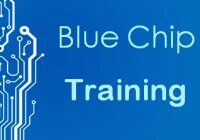Overview
This course is designed for business analysts, managers, team leads and process owners to provide them with the required competencies for creating use case diagrams and use case scenarios, which serve as a vehicle for eliciting, analyzing, documenting and communicating functional requirements. Delegates will practice creating use cases in the Unified Modeling Language (UML) to graphically represent the interactions between use cases and actors.
Requirements
Experience related to software development or basic technical knowledge is not striclty required but would be beneficial to understand the concepts better.
Course Outline
Introduction to Use Case Modeling
- Brief background and context for use cases
- Use case definitions, elements, and components
- Benefits of use case modeling
- Organizing requirements with use cases
- Use case diagrams as a UML notation
- Organizing the model with packages
Use case actors
- Users and Actors
- Business and system actors
- Identifying actors and mapping stakeholders
Use Cases – Indentify and Describe
- Identifying use cases and writing description
- Use Case Controls:
- preconditions
- postconditions
- assumptions
- scenarios
Use Case Scenarios
- Main success scenario
- Alternates and exceptions
- Indicating iteration
Advanced Techniques
- <<include>> relationship
- <<exclude>> relationship
- Generalization
- Specialization
- Multiplicity
Practical Use Cases Concepts
- Flows of events and their purpose: primary, alternate, and exception paths
- Methods for documenting primary flows
- Documenting alternate and exception flows
- Documenting scenarios
- Narrative flow examples
- Use Cases and Test Cases
- Relationship between use cases and test cases/scenarios
- Translating use cases into test cases
- Use cases and user interfaces/prototyping
- Prototyping roles, preparation, and execution
- UML Concepts
- UML notation
- Class and object relationships
- Extracting classes from use cases
- Verifying a class: attributes, operations, and associations/multiplicity
- Include relationship and example
- Referring to includes in flows
- Extend relationship and example
- Referring to extends in flows
- Generalization relationship and example
- Use case documentation

